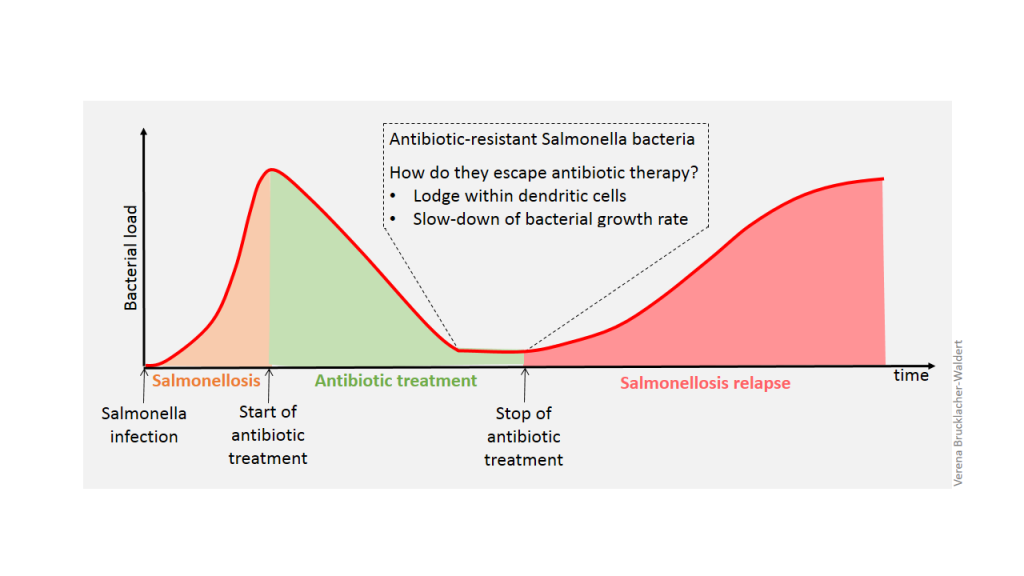FRIDAY, 11 APRIL 2014
The researchers studied bacterial tolerance to antibiotics by infecting mice with the bacterium Salmonella. These mice developed diarrhoea and systemic infections resembling Salmonellosis in humans. Even though Salmonella-infected mice were treated with antibiotics some bacteria still persisted in gut-draining lymph nodes. These antibiotic-tolerant bacteria were capable of reinitiating the infection on cessation of antibiotic therapy.Why did some of the bacteria survive antibiotic treatment? Antibiotic tolerance can be conferred either by genetic mechanisms or by phenotypic adaptation to antibiotics. In the present study bacterial survival was not due to genetic changes, as bacteria isolated from gut-draining lymph nodes remained sensitive to antibiotic exposure. Hence, the researchers hypothesised an induction or selection for antibiotic-tolerant bacteria by the environmental milieu.
Indeed, the scientist discovered, firstly, that Salmonella hides inside classical dendritic cells (immune cells that fight bacterial infection by digesting bacteria) and, secondly, that Salmonella lodging within dendritic cells have an extremely low growth rate. Considering that most of the antibiotics eliminate bacteria by inhibiting the processes necessary for bacterial growth, a slowed down growth is a highly adequate survival mechanism. However, it remains to be elucidated how Salmonella bacteria avoid digestion by dendritic cells and how their growth rate is decreased.
Finally, the researchers provided a solution of how to overcome antibiotic-tolerant Salmonella bacteria: They achieved decimation of persistent bacterial load by combining antibiotic treatment with compounds that stimulate the immune system. This combined approach might foster future research leading to novel therapies with increased efficacy also against other antibiotic-tolerant bacteria.
doi:10.1371/journal.pbio.1001793
Written by Verena Brucklacher-Waldert.

